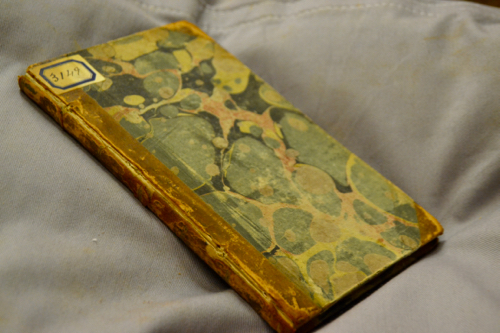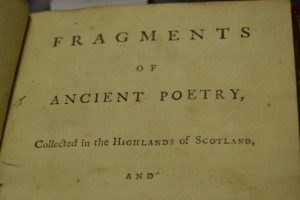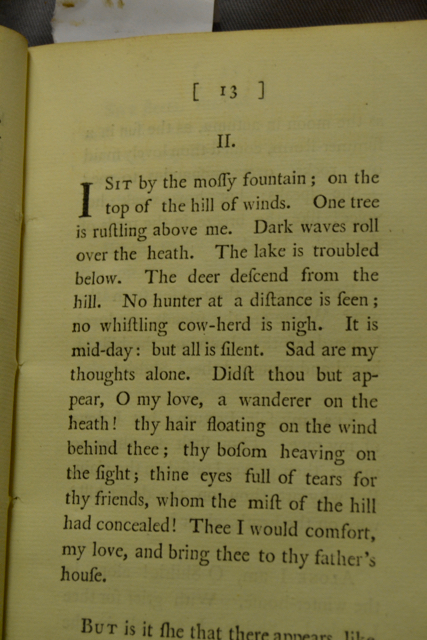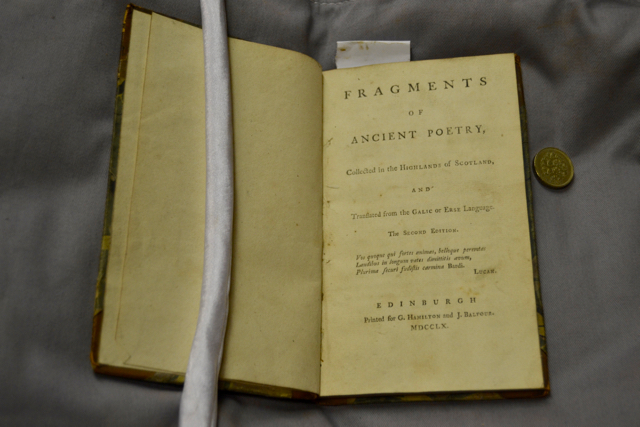
Author
James Macpherson
Title
Fragments of Ancient Poetry, Collected in the Highlands of Scotland, and Translated from the Galic or Erse Language
Published
Edinburgh: Printed for G. Hamilton and J. Balfour, 1760
Location
891.6311 FM3149

What is this book about?
Fragments of Ancient Poetry, published anonymously in 1760 by James Macpherson with help from Edinburgh academic and minister Hugh Blair, is a collection of sixteen short poems. They are fragments – that is, they are incomplete, and potentially part of a bigger work. Here is an extract from ‘Fragment II’:

Not all fragments are like this – some are dialogues – but this gives a good impression of the kind of writing one can find in this collection. They are prose poems – that is, they are written in rhythmic prose – and they are presented as translations from the Gaelic. In this extract we can see an emphasis on landscape – ‘mossy fountain’, ‘hill of winds’, ‘tree’, and so on – and on loneliness: our speaker is alone in the silence.
The Fragments also contain a ‘Preface’, written by Hugh Blair:




Here, Blair makes some interesting comments about another work that they are hoping to be published (Fingal, published in 1761/2), and talks about these fragments as ‘genuine remains of ancient Scottish poetry’.
Why does this book matter?
This book single-handedly changed the course of European literature. It kick-started the literary and aesthetic movement we now think of as Romanticism, and it placed Scotland in the centre of the literary map. This book was a bestseller – and remained so for the next half century. It also brought a vogue of literary travellers to Scotland, among them Dr Samuel Johnson, Dorothy and William Wordsworth, and Samuel Taylor Coleridge. Its presentation as a genuine translation of ancient Scottish poetry was problematic for a lot of eighteenth-century thinkers, and they questioned its authenticity, and accused Macpherson of forgery. This is largely to due with a misunderstanding about Gaelic culture and the nature of oral poetry.
When you read this book think about the places described in the poems – do they remind you of any actual locations you know? The Fragments make excellent reading on one of those rare autumn days, when (as Dorothy Wordsworth says) ‘Ossian’s old friends, sunbeams and mists’ are out in full force.

